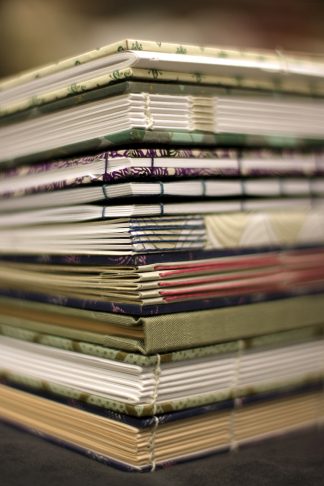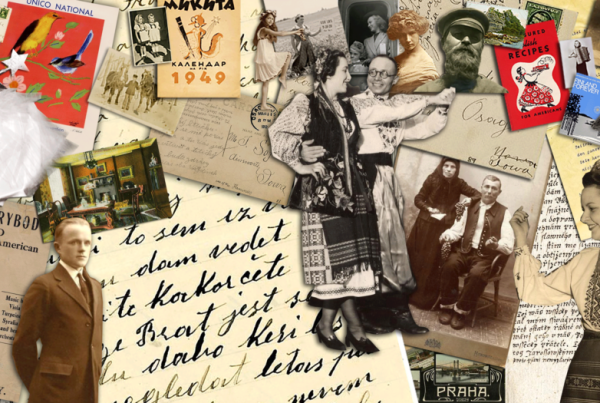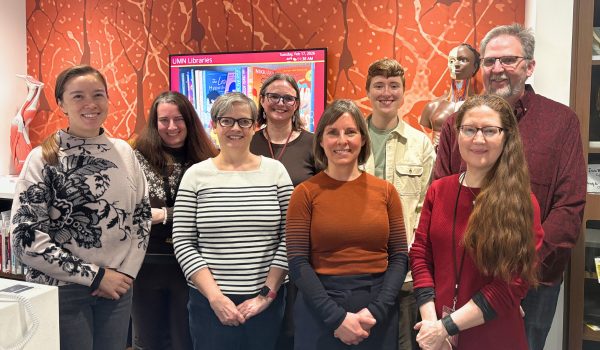The edible book made by Christopher Herzberg will be on display at the University of Minnesota Farmers Market outside of the McNamara Alumni Center on September 21 from 11:00 a.m. to 2:00 p.m.
Edible books must be “bookish” through the integration of text, literary inspiration, or quite simply, the form.
This rule set out by the International Edible Book Festival has inspired Christopher Herzberg of the Wangensteen Historical Library of Biology and Medicine to make his own edible book.
Learning a craft
“Repairing damaged book spines and covers has been a part of my job for some time,” said Herzberg, who has developed his craft over the years through courses on bookbinding at the Minnesota Center for Book Arts.
“I’ve learned about the types of materials used in books and how bindings are constructed,” Herzberg adds. “This has helped me develop an understanding of the strengths and weaknesses of the rare books in the Wangensteen Historical Library so I can determine preservation and conservation needs.”
Herzberg’s expertise in preservation has had practical application — especially with the library’s growing collection of rare books documenting the history of Chinese and Japanese medicine.
“These books are constructed with soft paper covers and are not built to be shelved standing up like western books,” he says. “So I’ve recreated protective book wraps like those used by 18th and 19th century Japanese and Chinese bookbinders.”
The making of an edible book
Herzberg’s skills have also been used for less practical (but incredibly fun) endeavors — vegetables included.
In a nod to the International Edible Book Festival, Herzberg is putting his bookbinding skills to use in order to create a 100-percent edible book.
“My book design is a riff on one of the oldest types of binding called Sewing over Tape,” Herzberg explains. “It is a variation of sewing on cords, which was used in many early Renaissance books.”
For this technique, the pages of a book are sewn together using a flat piece of linen to strengthen the binding. Herzberg’s edible book contains lettuce leaf pages sewn together with celery thread and green onion stalk tape. Two pieces of bread will act as the covers and the green onion tape will connect the whole “book” together.
“I experimented with several varieties of leafy vegetables, but romaine was the only green that held up to the sewing,” says Herzberg. “Surprisingly, both the green onions and the celery thread were more than up to the task.”
The edible book will be on display at the UMN Farmer’s Market on Wednesday, September 21. Salad dressing not included.
Video credit Brandon Hackbarth.






Wow this is so bizarre AND awesome at the same time! Would anyone ever come up with doing THIS for a living? Life is so versatile 🙂
Christopher is incredibly talented. In addition to his edible book, Christopher has made book cradles and used his bookbinding skills while working with rare books at the Wangensteen Historical Library.